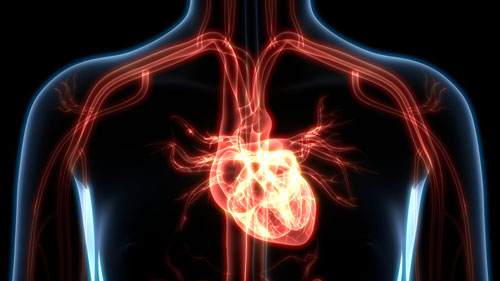You suddenly feel pain in your chest. Could it be a heart attack?
You have no idea.
You have other symptoms, too. Do they mean you’re having a heart attack?
You don’t have a clue.
You don’t want to call 911 if it’s something minor, like heartburn.
So, in terrible pain, you get on the internet and Google your symptoms.
Your life hangs in the balance. By the time you discover if you’re having a heart attack, it could be too late.
A new study shows that many of us are clueless about what it feels like to have a heart attack. And this lack of knowledge can be deadly.
Dr. Khurram Nasir is a preventive cardiology specialist at Houston Methodist Debakey Heart and Vascular Center. He and his colleagues analyzed responses to a government health survey.
Researchers asked people to list the symptoms associated with heart attacks. One fifth didn’t even know the basics. They couldn’t name the three most common signs. Only about half were familiar with all five.
The five symptoms are:
- Shortness of breath.
- Chest pain or discomfort.
- Feeling lightheaded, weak, or faint.
- Pain or discomfort in the shoulders or arms.
- Jaw, neck, or back pain.
Dr. Nieca Goldberg is a cardiologist with NYU Langone Medical Associates. She said it’s important for people to know with certainty what heart attack symptoms are. If you’re having one, “You should be calling 911 and not wasting time looking up your symptoms on a computer.”
The symptoms are not subtle. They feel strong and overwhelming when you’re in the midst of a heart attack. But they can occur in a weaker form before then, giving you an early warning that you should not ignore.
“Sometimes with clogged arteries they actually occur in a less intense way weeks before,” said Dr. Goldberg.
3 Things That Give You a Fighting Chance to Survive a Heart Attack
Most heart attack deaths occur within the first hour. If you can make it to the hospital alive, you have a 90% chance of survival. To increase your odds of arriving alive, do these three things…
- Chew one aspirin (or four baby aspirin). This will thin your blood and lessen the impact of the heart attack. Keep aspirin at home, work, and in your gym bag.[1]
- If other people are nearby, alert them that you may be having a heart attack. If you’re in a public place, a doctor may be nearby. If you lose consciousness, someone nearby may be able to perform CPR. If you’re driving, stop the car and flag down a passing motorist. If you’re on an airplane, notify a flight attendant.
- Minimize activity. Sit down and rest as best you can. Exertion strains the heart further. It’s better to lie in a half-sitting position with your head and chest slightly elevated and supported. Your knees should be bent. Lying flat can make it more difficult to breathe.[2] [3]
If you believe you are at high risk, talk to your doctor. He or she might instruct you to keep nitroglycerin tablets handy. They quickly dilate blood vessels and can limit heart attack damage.[4]
The key to surviving a heart attack is knowledge. Memorizing the symptoms is an important first step.
Editor’s Note: Research shows the standard heart disease treatments—stents and statin drugs—don’t prevent heart attacks. Discover what does. Get the Heart Smart Protocol. It’s a simple, science-backed plan that treats America’s number-one killer naturally. You’ll find it in our monthly journal, Independent Healing. Subscribe HERE.
Related Articles
The ‘Goldilocks Factor’ Stops Heart Attacks
Intermittent Fasting Improves Heart Health
Everyone Over 50 Needs This Heart Test
Like this Article? Forward this article here or Share on Facebook.
[1]https://www.dallasnews.com/life/healthy-living/2018/02/05/survive-heart-attack-least-fighting-chance
[2]https://www.wikihow.com/Survive-a-Heart-Attack
[3]https://www.theguardian.com/lifeandstyle/2010/apr/26/first-aid-myths-cost-lives
[4]https://www.dallasnews.com/life/healthy-living/2018/02/05/survive-heart-attack-least-fighting-chance

